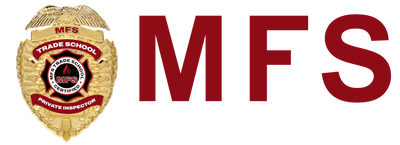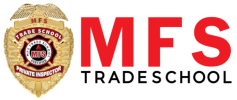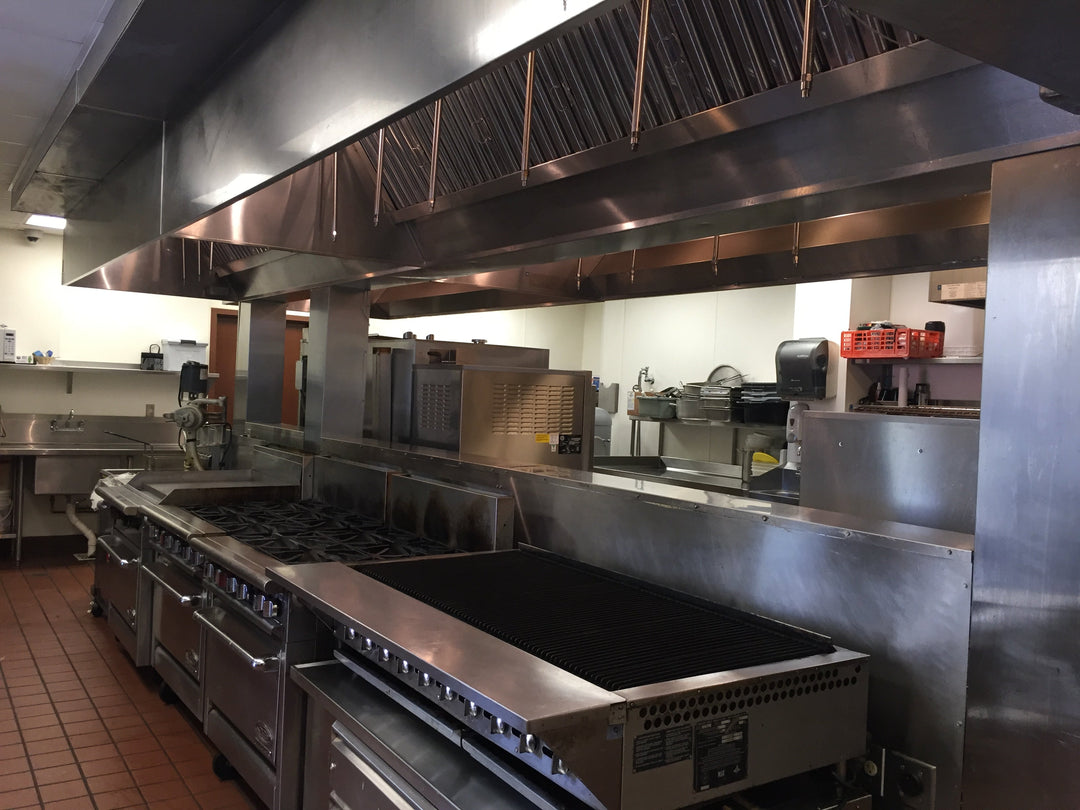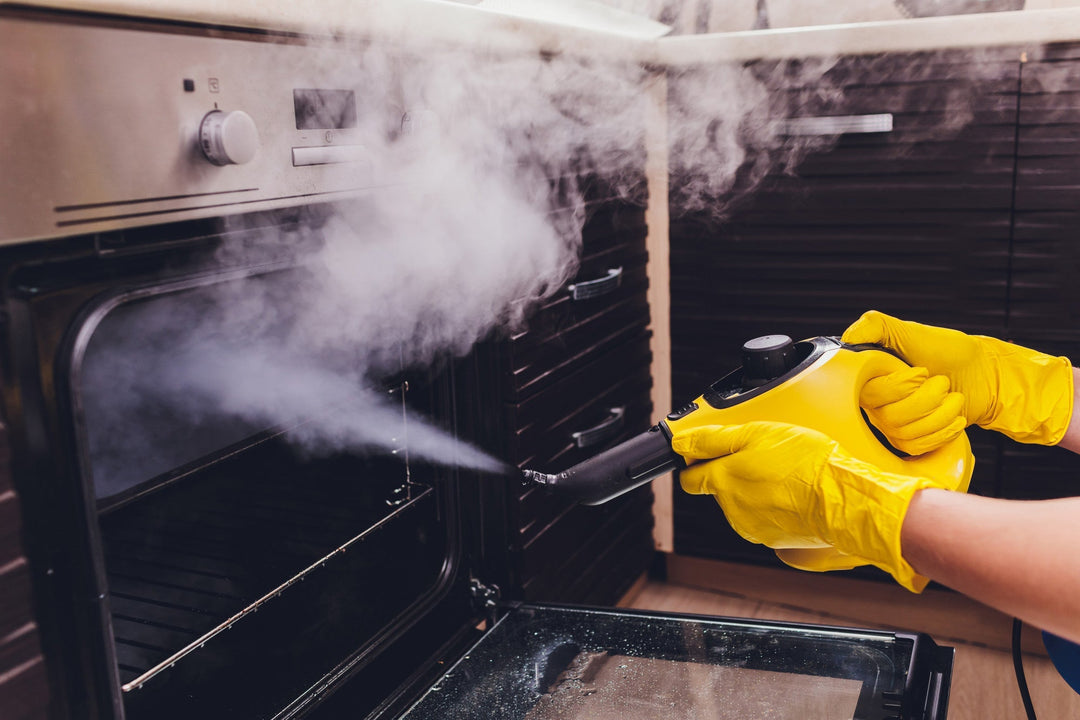Smart Maintenance: The Future of Kitchen Exhaust Systems

Smart maintenance is changing the way we maintain kitchen exhaust systems by using innovative technology. These advanced systems combine Internet of Things (IoT) capabilities with sophisticated monitoring tech to create intelligent hood services that transform commercial kitchen operations.
The Limitations of Traditional Maintenance
In the past, kitchen exhaust maintenance relied on manual inspections and reactive repairs. This approach had several drawbacks:
- Unexpected Failures: Without regular monitoring, systems could fail unexpectedly, leading to costly downtime.
- Fire Hazards: Grease buildup from improper cleaning could pose fire risks.
- Inefficient Energy Use: Outdated systems may consume more energy than necessary.
- Higher Costs: Reactive repairs and inefficient operations can drive up expenses.
- Compliance Issues: Failure to meet health department standards could result in penalties.
For example, regular kitchen exhaust cleaning is crucial for maintaining health ratings and ensuring compliance with health department standards.
The Benefits of Smart Maintenance
Smart maintenance changes this by using real-time monitoring and data-driven solutions. Your kitchen exhaust system becomes an intelligent network of connected devices, sensors, and controls working together to maintain peak performance.
The integration of IoT and monitoring technologies brings remarkable benefits:
- Predictive Maintenance: Identify potential issues before they become problems
- Remote Monitoring: Access system status from anywhere, anytime
- Automated Controls: Adjust ventilation based on real-time cooking demands
- Enhanced Safety: Continuous monitoring of grease levels and system performance
- Cost Reduction: Lower energy consumption and maintenance expenses
This technological evolution in kitchen exhaust systems represents a significant leap forward in commercial kitchen operations. By embracing smart maintenance solutions, you're not just maintaining equipment – you're investing in a safer, more efficient, and cost-effective future for your kitchen operations.
Complementing Smart Maintenance with Effective Cleaning Practices
In addition to smart maintenance, it's also essential to adopt effective cleaning practices. Utilizing products like the MFS Electrostatic Misting Fogger can significantly enhance your cleaning routine. This versatile fogger is battery-operated with a heavy-duty blower that reaches 8 feet away, allowing you to mist a 14' x 20' room in seconds.
Moreover, employing a powerful hood degreaser can help tackle the grease buildup effectively. With such tools at your disposal, maintaining the kitchen exhaust system becomes less of a chore and more of an efficient process.
Ensuring Safety Through Thorough Disinfection
Nonetheless, the importance of thorough virus disinfecting cannot be overlooked in today's health-conscious environment. Hence, incorporating virus disinfecting services into your maintenance routine can provide an additional layer of safety for your staff and customers.
Starting Up? Consider Our Exhaust Hood Cleaning Package!
Lastly, if you're starting up a new venture or need essential equipment for exhaust hood cleaning, consider our Silver Package Exhaust Hood Cleaning which covers all necessities for a successful start-up!

The Role of IoT in Smart Maintenance
IoT technology is changing kitchen exhaust systems into smart networks that can monitor themselves. These systems use connected sensors, devices, and cloud-based platforms to create a complete system for monitoring and controlling.
Key Components of IoT in Kitchen Ventilation:
- Smart sensors measuring temperature, airflow, and grease levels
- Cloud-based data processing systems
- Real-time monitoring interfaces
- Automated control mechanisms
- Mobile connectivity for remote access
IoT platforms like Halton Connect are transforming kitchen ventilation solutions by creating a direct connection between system components and maintenance teams. This connection allows for immediate detection of potential problems, ranging from minor inefficiencies to major malfunctions.
Performance Enhancement Through IoT:
- Real-time adjustment of ventilation rates based on cooking activity
- Automatic balancing of air pressure across the kitchen space
- Precise control of exhaust fan speeds
- Dynamic response to changes in cooking conditions
- Continuous optimization of system parameters
The safety aspects of kitchen ventilation are greatly improved through IoT integration. Smart sensors constantly monitor grease buildup, temperature levels, and air quality, sending out immediate alerts when measurements go beyond set limits.
Remote Monitoring Capabilities:
- 24/7 system surveillance from any location
- Instant notification of operational anomalies
- Remote diagnostics and troubleshooting
- Historical data analysis for performance trends
- Predictive maintenance scheduling
With the advent of cloud-based predictive maintenance systems, IoT platforms allow maintenance teams to access detailed system information through user-friendly dashboards. These interfaces display critical data points, enabling technicians to:
- Assess system health in real-time
- Identify potential issues before they escalate
- Plan maintenance activities efficiently
- Adjust operational parameters remotely
- Track system performance metrics
The integration of IoT in kitchen ventilation creates a proactive maintenance environment. Instead of waiting for system failures, maintenance teams can address potential issues during their early stages, minimizing downtime and reducing repair costs.
Smart sensors continuously collect data on system performance, creating comprehensive operational profiles. This information helps identify patterns and trends, enabling maintenance teams to optimize service schedules and predict equipment needs accurately with the help of predictive maintenance strategies.
In addition to these technological advancements, it's essential to recognize the importance of skilled professionals in implementing and maintaining these sophisticated systems. Trade schools are playing a crucial role in bridging America's skills gap, providing training programs that empower individuals with the necessary skills for such high-tech jobs.
Furthermore, practical experience is vital in fields like kitchen exhaust cleaning or hood cleaning business management. For instance, learning how to successfully transform a hood cleaning business can provide valuable insights into the industry's operational aspects.
Moreover, maintaining these systems often involves using specialized tools such as a [pressure washing hose]

Monitoring Technologies for Kitchen Exhaust Systems
Advanced monitoring technologies transform kitchen exhaust system maintenance through sophisticated data collection and analysis capabilities. These systems continuously gather critical operational data points:
- Temperature variations across the system
- Airflow measurements
- Grease accumulation levels
- Filter performance metrics
- Fan speed and efficiency rates
- Energy consumption patterns
Real-time data analysis enables kitchen operators to detect potential issues before they escalate into major problems. The system's AI-driven algorithms process this information to identify patterns and anomalies, creating a predictive maintenance framework that significantly reduces unexpected breakdowns.
Key Performance Indicators (KPIs) Tracked:
- System pressure differentials
- Heat load variations
- Ventilation efficiency rates
- Equipment runtime hours
- Maintenance schedule adherence
Smart sensors placed throughout the exhaust system create a comprehensive monitoring network. These sensors transmit data to centralized platforms where advanced analytics tools process the information, generating actionable insights for maintenance teams.
Alert Systems and Diagnostic Capabilities:
- Immediate Notifications: Instant alerts when parameters deviate from preset thresholds
- Detailed Diagnostics: In-depth analysis of system components showing signs of wear
- Performance Trending: Historical data analysis to predict future maintenance needs
- Custom Reporting: Tailored reports highlighting specific areas requiring attention
The integration of machine learning algorithms enhances the system's ability to predict maintenance requirements. By analyzing historical data patterns, these systems can:
- Forecast component failures
- Schedule preventive maintenance
- Optimize cleaning cycles
- Adjust operational parameters
Modern monitoring platforms feature user-friendly dashboards that display system status in real-time. Maintenance teams can access detailed performance metrics through mobile applications, enabling quick response times and efficient resource allocation.
Data-Driven Decision Making:
- Historical performance analysis
- Component lifecycle tracking
- Resource utilization metrics
- Cost-benefit assessments
- Maintenance scheduling optimization
These monitoring technologies integrate with building management systems (BMS) to provide comprehensive facility oversight. The collected data helps kitchen operators maintain optimal system performance while minimizing operational costs and reducing environmental impact.
Additionally, incorporating custom video reviews can provide valuable insights into the effectiveness of these monitoring technologies by sharing real experiences and feedback tailored to specific needs.
Components of Smart Maintenance Platforms
Smart maintenance platforms integrate multiple technologies to create comprehensive kitchen exhaust management systems. These platforms combine hardware and software solutions to deliver optimal performance, safety, and efficiency.
Core Technology Components:
1. Water Wash Systems
- Automated cleaning cycles
- Programmable schedules
- Built-in detergent dispensers
- Self-monitoring capabilities
2. Grease Detection Technology
- Real-time grease accumulation monitoring
- Precision sensors for grease level measurement
- Automatic alerts for cleaning requirements
- Performance tracking analytics
3. UV Capture Ray™ Technology
- Advanced grease breakdown systems
- Odor neutralization capabilities
- UV lamp performance monitoring
- Automated maintenance scheduling
Energy Management Integration
Smart platforms incorporate M.A.R.V.E.L. (Model-based Automated Regulation of Ventilation Exhaust Levels) technology to optimize energy usage. This system:
- Adjusts exhaust fan speeds based on cooking activity
- Monitors temperature and vapor levels
- Creates customized ventilation profiles
- Reduces unnecessary system operation
Advanced Control Features
The integration of Cold Mist technology enables precise management of heavy-duty cooking equipment through:
- Temperature-controlled ventilation
- Customized airflow patterns
- Automated response to cooking conditions
- Real-time system adjustments
Safety and Monitoring Systems
Smart maintenance platforms include comprehensive safety features:
- Duct safety controls with temperature monitoring
- Fire suppression system integration
- Emergency shutdown protocols
- Automated safety compliance checks
Cloud-Based Management Interface
These platforms utilize cloud technology to provide:
- Remote system access
- Real-time performance data
- Customizable dashboard displays
- Mobile device compatibility
The combination of these components creates a robust system that maintains kitchen exhaust efficiency while reducing operational costs. Smart maintenance platforms adapt to specific kitchen requirements, providing scalable solutions for facilities of any size.
Smart platforms track system performance metrics through integrated sensors and controls, enabling data-driven decisions for maintenance scheduling and system optimization. This technological integration transforms traditional hood cleaning services into proactive maintenance solutions that prevent issues before they impact kitchen operations.
Regular equipment maintenance is crucial for cleaning businesses as it boosts efficiency, reduces downtime, and saves on costly repairs. If you're considering starting a hood cleaning business, it's essential to understand the costs, training, and certification requirements involved.
Moreover, the growth of your cleaning business can be significantly accelerated through mentorship. By leveraging the knowledge and experience of seasoned industry experts, you can navigate challenges more effectively and seize opportunities as they arise.

Energy Efficiency and Environmental Benefits
Smart maintenance practices in kitchen exhaust systems deliver significant energy savings while promoting environmental sustainability.
Advantages of Smart Maintenance in Kitchen Exhaust Systems
Enhanced Safety Measures
Smart maintenance transforms safety protocols in commercial kitchen exhaust systems through advanced monitoring and automated responses. The use of IoT technology in commercial exhaust hood systems creates a strong safety network that actively prevents fire hazards, such as those discussed in this case study on effective hood cleaning strategies for fire prevention.
Some of the key features include:
- Real-time grease level monitoring in kitchen hood vents
- Automatic shutdown protocols during dangerous conditions
- Instant alerts for temperature anomalies
- Continuous airflow optimization
These safety features work together to create multiple layers of protection for your kitchen staff and equipment. The system's ability to detect potential issues before they escalate into serious problems changes the traditional reactive approach into a proactive safety strategy.
Cost Benefits of Smart Maintenance
Reduced Emergency Repairs
- Predictive maintenance alerts
- Early detection of wear and tear
- Prevention of major system failures
Extended Equipment Lifespan
- Optimized cleaning schedules, similar to those taught in our comprehensive [kitchen exhaust hood cleaning training](https://mfstradeschool.com/pages/mfs-kitchen-exhaust-hood-cleaning)
- Reduced strain on system components
- Better performance consistency
Labor Cost Optimization
- Automated exhaust hood cleaning cycles, which can be efficiently managed through our online training program for workers here
- Reduced manual inspection needs
- Efficient resource allocation
Smart maintenance platforms for commercial kitchen exhaust hood systems track performance metrics and maintenance history, creating detailed operational profiles. This data-driven approach enables precise scheduling of maintenance activities, eliminating unnecessary service calls while ensuring critical tasks are never missed.
The integration of smart sensors in kitchen exhaust hood cleaning systems provides real-time monitoring of:
- Grease accumulation rates
- Filter efficiency levels
- Fan performance metrics
- System pressure readings
These measurements help maintain optimal system performance while minimizing operational costs. By identifying efficiency drops early, smart systems prevent the cascading effects of minor issues becoming major problems.
The predictive maintenance capabilities of smart systems reduce unexpected downtime by up to 70%. For commercial kitchens, where every minute of downtime translates to lost revenue, this improvement in system reliability directly impacts the bottom line.
Smart maintenance also streamlines compliance documentation through automated record-keeping. The system maintains detailed logs of all maintenance activities, cleaning cycles (like those offered in our Gold Equipment Package for Kitchen Exhaust Hood Cleaning), and system performance metrics, simplifying audit processes and reducing administrative burden.
Regulatory Compliance and Sustainability Benefits
Smart maintenance systems streamline compliance with industry regulations for commercial kitchen operators. These advanced platforms automatically track and document essential maintenance activities, creating detailed records that satisfy health department requirements, such as the essential restaurant cleanliness tips from health inspectors, and fire safety standards.
Key Compliance Features:
- Real-time monitoring of grease accumulation levels
- Automated documentation of cleaning schedules
- Digital maintenance logs accessible for inspections
- Instant alerts for compliance-related issues
- Verification of proper exhaust fan operation
The integration of IoT technology in commercial kitchen hood systems helps operators meet NFPA 96 standards for ventilation control and fire protection. Smart sensors continuously monitor critical parameters, ensuring your system maintains the required air velocity and capture efficiency rates specified by regulatory bodies.
Sustainability Advantages:
- Resource Conservation
- Reduced water usage through optimized cleaning cycles
- Decreased chemical cleaner consumption
- Minimized energy waste from system inefficiencies
- Waste Reduction
- Extended equipment lifespan
- Fewer replacement parts needed
- Optimized maintenance schedules, such as following these essential seasonal maintenance tips for kitchen exhaust systems
Smart maintenance platforms contribute to green building certifications by providing data-driven insights into system performance. Commercial kitchen operators can track their environmental impact through detailed analytics on energy consumption, water usage, and carbon emissions.
The adoption of IoT-enabled hood services supports sustainable kitchen operations through:
- Precise airflow management based on cooking demand
- Smart scheduling of maintenance activities
- Integration with building management systems
- Data-driven optimization of resource usage
These innovative technologies help commercial kitchens achieve their sustainability goals while maintaining regulatory compliance. Smart sensors and monitoring systems create a comprehensive approach to kitchen exhaust management that aligns with both current standards and future environmental regulations.
The data collected through smart maintenance platforms enables kitchen operators to demonstrate their commitment to sustainability initiatives. This information proves valuable for businesses seeking environmental certifications or participating in green building programs.
For more information on how to align your HVAC systems with the latest building requirements, feel free to reach out for assistance. Additionally, for more insights or assistance in training and certification programs related to restaurant cleaning and maintenance, feel free to contact MFS Trade School.
Conclusion
Smart maintenance is a game-changer for managing kitchen exhaust systems. With the use of IoT and monitoring technologies, commercial kitchen operators now have amazing opportunities to improve their operations like never before.
The benefits of adopting smart maintenance solutions are clear:
- Enhanced System Performance: Real-time monitoring and predictive maintenance capabilities ensure optimal functioning
- Improved Safety Standards: Advanced sensors and automated controls minimize fire risks
- Cost Efficiency: Data-driven maintenance reduces unexpected breakdowns and extends equipment life
- Environmental Impact: Smart technologies optimize energy usage and reduce carbon footprint
These innovative technologies hold the key to the future of kitchen exhaust systems. Smart maintenance platforms are continuously evolving, offering increasingly sophisticated features that transform how we approach system management. By embracing these solutions, commercial kitchen operators can position themselves as leaders in industry innovation.
The time to act is now. By implementing smart maintenance solutions, you can revolutionize your kitchen exhaust system management, ensuring long-term success and sustainability. These technologies not only protect your investment but also create safer, more efficient, and environmentally responsible commercial kitchen operations.
Make the smart choice - embrace the future of kitchen exhaust system maintenance through IoT integration and advanced monitoring technologies.






